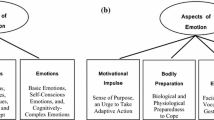Abstract
D. Lewis proposed the reformed conditional analysis of disposition to handle Martin's influential counterexamples to the simple counterfactual analysis. Some philosophers, however, argue that the mere fact that the reformed conditional analysis of disposition can handle Martin's counterexamples should not be regarded as a reason to prefer the reformed conditional analysis to the simple analysis. In this paper, I argue that the reformed version should be preferred not because it can handle Martin's counterexamples but because there are other counterexamples to the simple conditional analysis.
Similar content being viewed by others
Notes
Canonical dispositions are, roughly, dispositions that are explicitly couched in the overtly disposition locution. See Choi (2008) p. 796. Canonical dispositions are contrasted with conventional dispositions. Roughly speaking, conventional dispositions are such dispositions as fragility, water-solubility, and elasticity that correspond to simple predicates in English. See Choi (2008) p. 806.
Formulations (1) and (2) are from Sungho Choi (2006), even though the numbering is different.
For Bird-style counterexamples, see Bird (1998).
For Smith-style mimicker cases, see Smith (1977).
Someone may think that there are theories of causation according to which ‘salt’s being thrown into water after being hexed’ can cause ‘its prompt dissolving.’ I agree that there are such theories even though I think they are not tenable. But the mere existence of such theories does not undermine my point: RCA is in a better position to handle this problem compared to SCA.
An anonymous referee suggested that we must think the manifestation of cold-cure is that the taker has a higher chance to recover than otherwise. I think this is not right. Imagine that C is a genuine cold drug which is very effective but does not always cure the cold. According to this suggestion, even when C failed to cure a cold patient we must say that the disposition to cure the cold was manifested because even in this case the chance of recovery was increased. This result is weird. If C fails to cure a cold patient, then we must say that the disposition C has failed to be manifested. Another reason why this suggestion is not acceptable is that it has the same problem as that of strengthening of manifestation which is discussed in the next paragraph.
Somebody told me that snake oil is not totally inert. For the sake of argument, however, let me assume that snake oil is totally inert.
For this line of argument, see Gundersen 2004.
References
Bird, A. (1998). Dispositions and antidotes. The Philosophical Quarterly, 48, 227–34.
Choi, S. (2006). The simple vs. reformed conditional analysis of dispositions. Synthese, 148, 369–79.
Choi, S. (2008). Dispositional properties and counterfactual conditionals. Mind, 117, 795–841.
Gundersen, L. B. (2002). In defense of the conditional account of dispositions. Synthese, 130, 389–411.
Gundersen, L. B. (2004). Outline of a new semantics for counterfactuals. Pacific Philosophical Quarterly, 85, 1–20.
Lewis, D. (1997). Finkish dispositions + refutation of simple conditional analysis. Philosophical Quarterly, 47(187), 143–58.
Martin, C. B. (1994). Dispositions and conditionals. Philosophical Quarterly, 44(174), 1–8.
Smith, A. D. (1977). Dispositional properties. Mind, 86, 439–45.
Author information
Authors and Affiliations
Corresponding author
Rights and permissions
About this article
Cite this article
Lee, J. Disposition, Explanation, and Causation—A Defense of the Reformed Conditional Analysis of Disposition. Philosophia 38, 569–577 (2010). https://doi.org/10.1007/s11406-009-9235-z
Received:
Revised:
Accepted:
Published:
Issue Date:
DOI: https://doi.org/10.1007/s11406-009-9235-z




